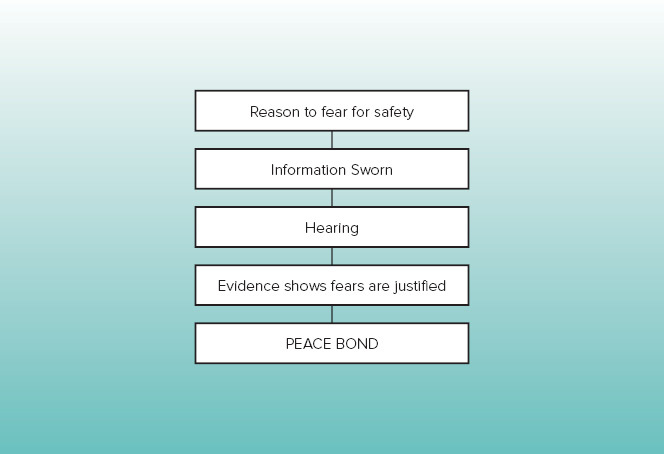
Safety for Victims
- The police can protect you if you are in danger.
- If you are threatened with further harm the police can help.
- Someone who is threatening you could be charged with a crime or be ordered to sign a peace bond.
If you are the victim of a crime, you may be concerned for your safety. Sometimes this means calling the police or leaving your house. It may also involve doing things like changing your locks, cancelling your credit cards or changing your phone number.
Once you are out of immediate danger you may still have safety concerns. You may be afraid that the person who harmed you will harm you again. Maybe they threatened to hurt you or your family if you go to the police or testify in court. It’s important to know that victims have a right to protection in the criminal justice system. Your safety as a victim must be considered by all people dealing with the crime. If you have concerns about your safety tell the police. You can also talk to the Crown Prosecutor or the judge.
If the person who harmed you is threatening you they may be charged with another crime. It is a criminal offence to threaten or bribe a witness. As well, anyone who makes you afraid for your safety or the safety of someone you know may be committing a criminal offence if they are:
- repeatedly following you (or someone you know)
- repeatedly visiting, calling or writing
- watching your home or workplace
- threatening you or someone in your family
Trying to force you to do something, or trying to stop you from doing something, may also be a crime if the person does this by:
- using violence against you, your family or property
- threatening you or your family with violence or damage to your property
- following you
- taking your things
- continually or aggressively watching your home or place of work
It is also a criminal offence for someone to threaten to hurt you, damage your property or harm your animals.
If any of these things are happening to you, call the police.
Peace Bonds
If you have a reasonable fear that someone is going to harm you, your children or your property, you can ask the court for a peace bond. A peace bond is a court order. With a peace bond the court can order the person not to contact you or come near your home, workplace or family. A peace bond does not cost anything, and you do not need a lawyer to get one.
An application for a peace bond can be made alone or in addition to a criminal investigation. The police or Crown Prosecutor can help you ask for a peace bond. The person you fear will have to go to court. At court they may agree to enter into a peace bond. They may agree to conditions, such as not contacting you. A peace bond can be in place for up to one year.
If the person refuses to enter into a peace bond, a hearing date will be set. You may have to come to court to explain why you are afraid of this person. A Crown Prosecutor will help explain the situation to the judge. The judge will hear both sides before deciding whether to order the peace bond. The Crown Prosecutor can tell you about support services that are available to assist victims through this process.
A peace bond is not a criminal conviction. As long as the conditions of the peace bond are met, the person will not be charged with a criminal offence. If the conditions are broken, the person can be charged with a criminal offence.


